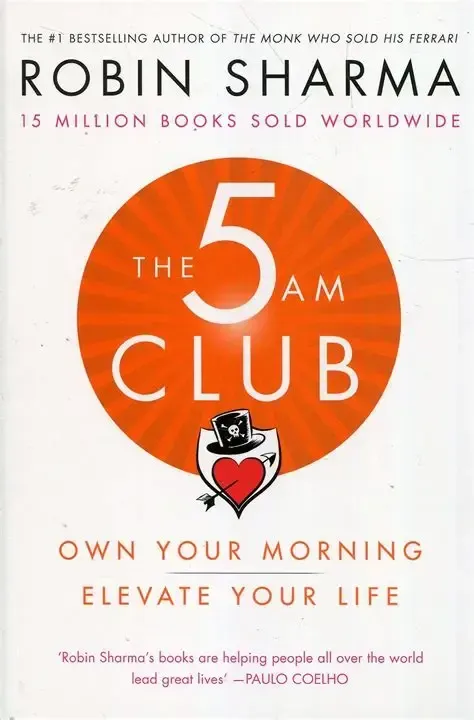
The book explores the idea of waking up early to create a meaningful morning routine, but ultimately emphasises the importance of personalising your approach to find what truly resonates with you. Rather than adhering strictly to a formula, the book invites readers to discover their own rhythm and cultivate clarity in their daily lives.
Image: Supplied
The first time I bought Robin Sharma’s The 5AM Club, it didn’t land. The storytelling felt too staged, the language dramatic, and the formula too rigid.
A billionaire mentor, a struggling artist, and an overwhelmed entrepreneur travel the world and unlock life-changing wisdom? It read more like a self-help screenplay than something rooted in lived experience.
I shelved the book and moved on.
A few days ago, I returned to it. Not because I was seeking a breakthrough or needed to be saved from chaos, but simply because I was ready to explore a quieter question: what might change if I started my day with intention, before the world entered with its noise?
This time, I read the book through a different lens. I wasn’t looking for a manual or a miracle; I was searching for something real.
Beyond the Performance
Sharma’s method is built around the “20/20/20 formula,” which suggests dividing the first hour of your day into three parts — movement, reflection, and growth. Twenty minutes each. In theory, it’s structured and effective; in practice, it can feel restrictive.
That said, there is value in what he is trying to communicate. Mornings offer cognitive space. The mind is clear, willpower is stronger, and you have a brief window of stillness before the demands begin. Whether or not you follow the formula exactly is beside the point. What matters is how you choose to meet yourself at the start of the day.
I stopped trying to replicate the book’s instructions and began building my own version of the morning. Sometimes I stretch or walk; sometimes I journal. Other times, I simply sit with tea and breathe. The anchor is not the activity; it is the attention I bring to it.
This Is Not About Waking at 5AM
Let’s be honest: the 5AM message can sound like a productivity badge. For many, waking up that early is neither realistic nor necessary. Parents, shift workers, students, and night owls all have different energy rhythms and life demands.
The takeaway isn’t that 5AM is superior; it’s that the early hours, if accessible, can be protected. They offer a pocket of time to connect with yourself before your energy is outsourced to others. Whether that happens at five, six, or seven in the morning is less important than the quality of attention you bring to it.
Thinkers like Cal Newport have long emphasised the value of deep focus and intentional starts. Sharma’s version is one among many, and it only becomes useful when you personalise it.
Finding My Own Rhythm
What worked for me was letting go of someone else’s formula and tuning into what felt honest. I wasn’t chasing discipline; I was cultivating clarity. Some mornings, my practice is simple — five minutes of breath or a page from a book that grounds me. Other days, it’s thirty minutes of writing or reading something thought-provoking. I am not trying to optimise; I am trying to align.
This kind of practice is subtle but powerful. It creates a baseline. When the day gets messy, I have already centred myself. I feel less scattered. I respond rather than react. Most importantly, I remember that my time is mine to direct.
Final Thoughts
The 5AM Club is not a flawless book. Its delivery is overdone, its tone leans into hyperbole, and its storytelling will not appeal to everyone. But if you read past the performance and into the principle, you may find something valuable.
You do not need to be a high achiever or a morning person to benefit from a quiet, deliberate start. You just need a moment that belongs to you — not borrowed, not reactive, but yours.
In the end, this book didn’t change my life; it reminded me to claim it. That is enough.